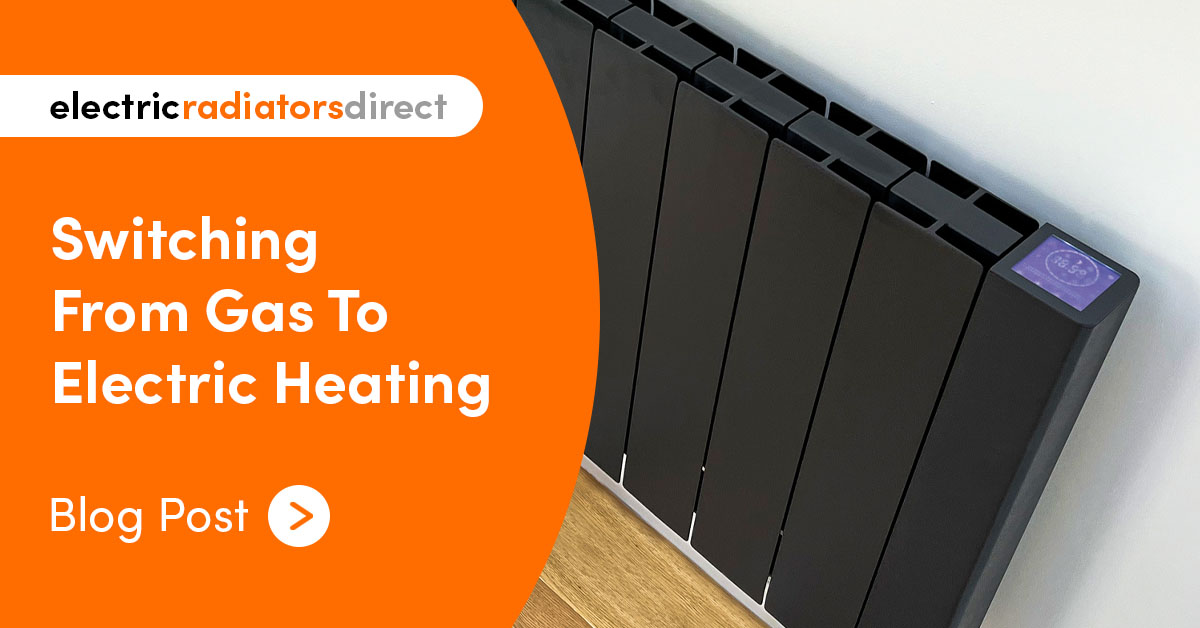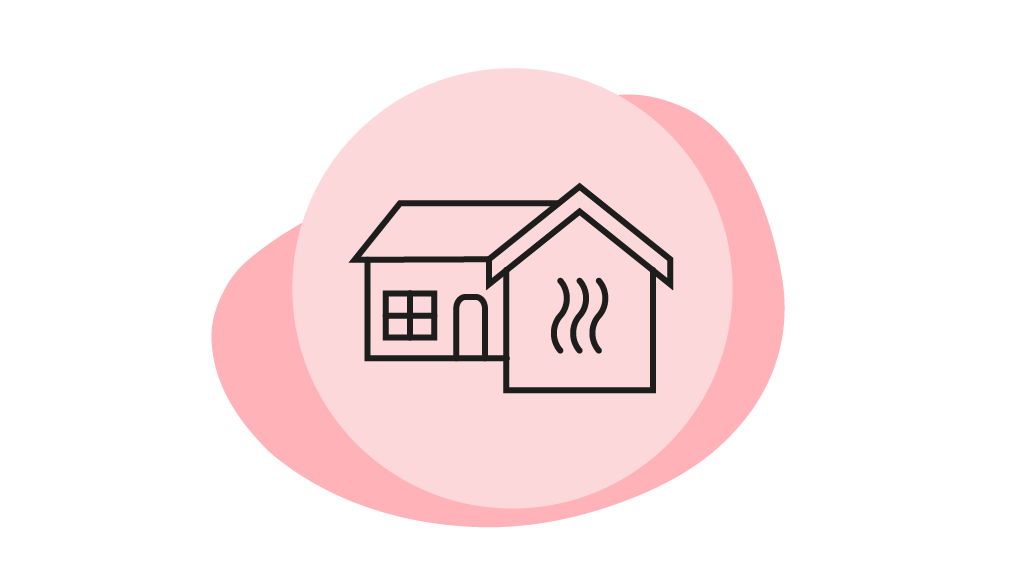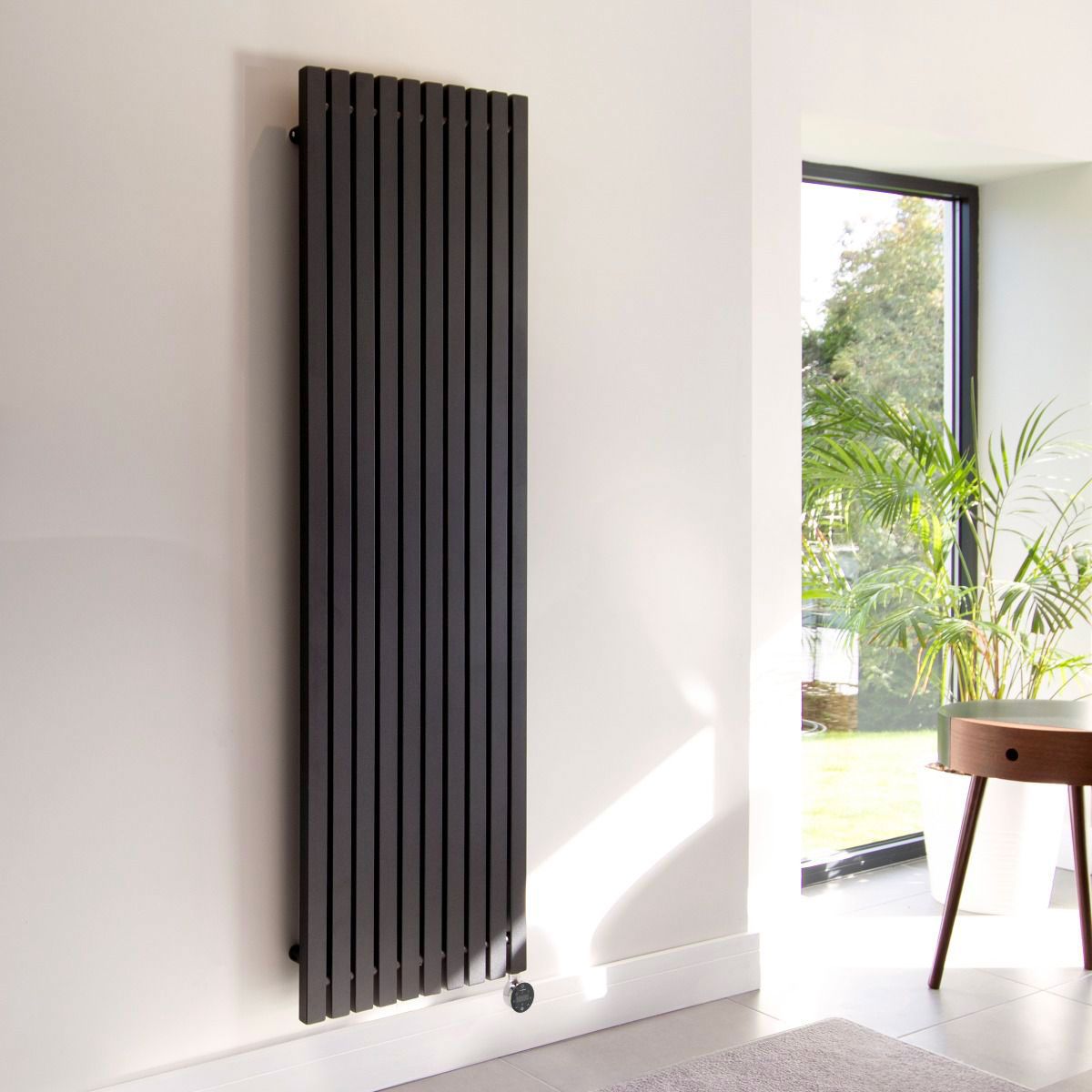

Last updated: February 2023
Making the switch from gas to electric heating can be a daunting prospect, especially as we are a nation that has depended on gas central heating for so long, but the fact of the matter is gas is no longer sustainable. A good alternative is electric, not only with our cars but with our heating too, as it’s the more environmentally conscious choice. There are a number of things to consider before switching, which is why we’re here to help guide you through the energy-saving world of electric heating.
Why switch from gas to electric?
If you’ve been considering making the switch for a while, then you may already know the answer. For a long time, gas has come out on top because it’s cheap to run and because we are familiar with it to a point where we have become too reliant, but gas is no longer the desired way of the future. Since there is now a target in place calling for our country to reduce our emissions to a total of net zero by 2050, it is time to start making changes. As one of the biggest contributors to those emissions, the age of gas central heating is coming to its end. This is why we are looking into alternatives, with electric leading the way. Electric heating is better for the environment, easy to install, virtually maintenance-free and allows for individual programming, so you can adjust the temperature room by room depending on your needs. It is versatile, cost-effective and efficient, making it the ideal alternative to keeping your home warm.
Gas central heating is a major contributor to global warming, alongside being high maintenance and prone to heat loss. We’re here to show how electric radiators overcome these issues.
How easy is it to make the switch?
If you are anything like me, you want to avoid any potential hassle whenever you can and let’s be honest, who doesn’t? You’d be forgiven for assuming it might be complicated to switch from one heating system to another, after all, central heating has been at the heart of the majority of homes in the UK for a long time now. The biggest task you have on your hands is the actual removal of your gas central heating as you will need to contact a qualified gas engineer who can decommission your boiler and then remove the existing pipes and radiators. This can be time-consuming and contractor prices can vary but if you’re dedicated to upgrading to a more efficient and eco-friendly solution, this task will be worth undertaking.
Once this is done you can then move on to the easy part – fitting your electric radiators. With straightforward installation options there is no need to fit pipes or flues and a professional can simply connect your heaters to the mains. Electric heating can be fitted throughout a property, from bathroom to bedroom to kitchen, with different designs to fit all interiors. Plus, very little maintenance is required, with only a casual dusting needed every now and again to keep everything in tip-top condition. So really, making the switch to electric isn’t as difficult as you might think.
What are the benefits?
There are a number of benefits when it comes to switching from gas to electric heating with the most obvious being energy-efficiency. As we source more green energy from renewables, electric is becoming much better for the environment than gas, plus it is also safer to use as there is no risk of any carbon monoxide leaks. For this reason, electric heating has no need for annual checks and callouts which will ultimately save you money in the long run. It also doesn’t cost a fortune to repair electric heating like it does with gas and if one of your heaters happens to fail, the rest of your system will be fine, ensuring your home remains warm whilst you wait for any repairs to be carried out. Electric allows you to control your heaters individually, so you can turn them off in rooms you do not use as often and keep them on in more frequented areas of the home. Again, this will see you saving on costs and energy, reducing your waste and increasing the efficiency of your property as a whole.


Energy Efficient


Maintenance Free


Zoned Heating


Advanced Control
From fast-acting and effective warmth to zero maintenance, check out this video to learn why electric radiators are taking UK homes by storm.
Is electric heating as effective as gas?
Gas central heating provides comfortable warmth that is produced through a combination of radiation and convection, heating the air as well as nearby objects and people directly. You feel the effect of this heat in minutes at the press of a button or a turn of a dial. Electric heating produces the same level of effective heat in the same way but takes it one step further by providing advanced control for better convenience. Modern electric radiators now come with precision thermostats to give the most accurate temperature, and WiFi control for sophisticated programming, allowing you to set a heating schedule to suit your lifestyle that you can adjust even when you’re out and about. They also offer further energy-saving features such as adaptive start and open window detection.
In this video, we're comparing the two for efficiency, control, maintenance and running costs to find out once and for all which heating system deserves the top spot.
Make the switch today
By making the switch from gas to electric heating, you’re not only doing yourself a favour, but the planet as well. As an eco-friendly upgrade, electric is the perfect alternative when it comes to choosing a new heating system, so why not make the switch sooner rather than later and get ahead of the game?
Key learnings
- As we move towards net zero in 2050, many are turning towards more efficient alternatives. Easy to install, maintenance free and simple to manage, electric heating has a range of benefits that make it the optimal choice.
- Electric heating can be fitted throughout a property and be controlled on a room-by-room basis.
- 100% efficient at point of use, electric heating can also be paired with a green energy tariff for completely green heating.




